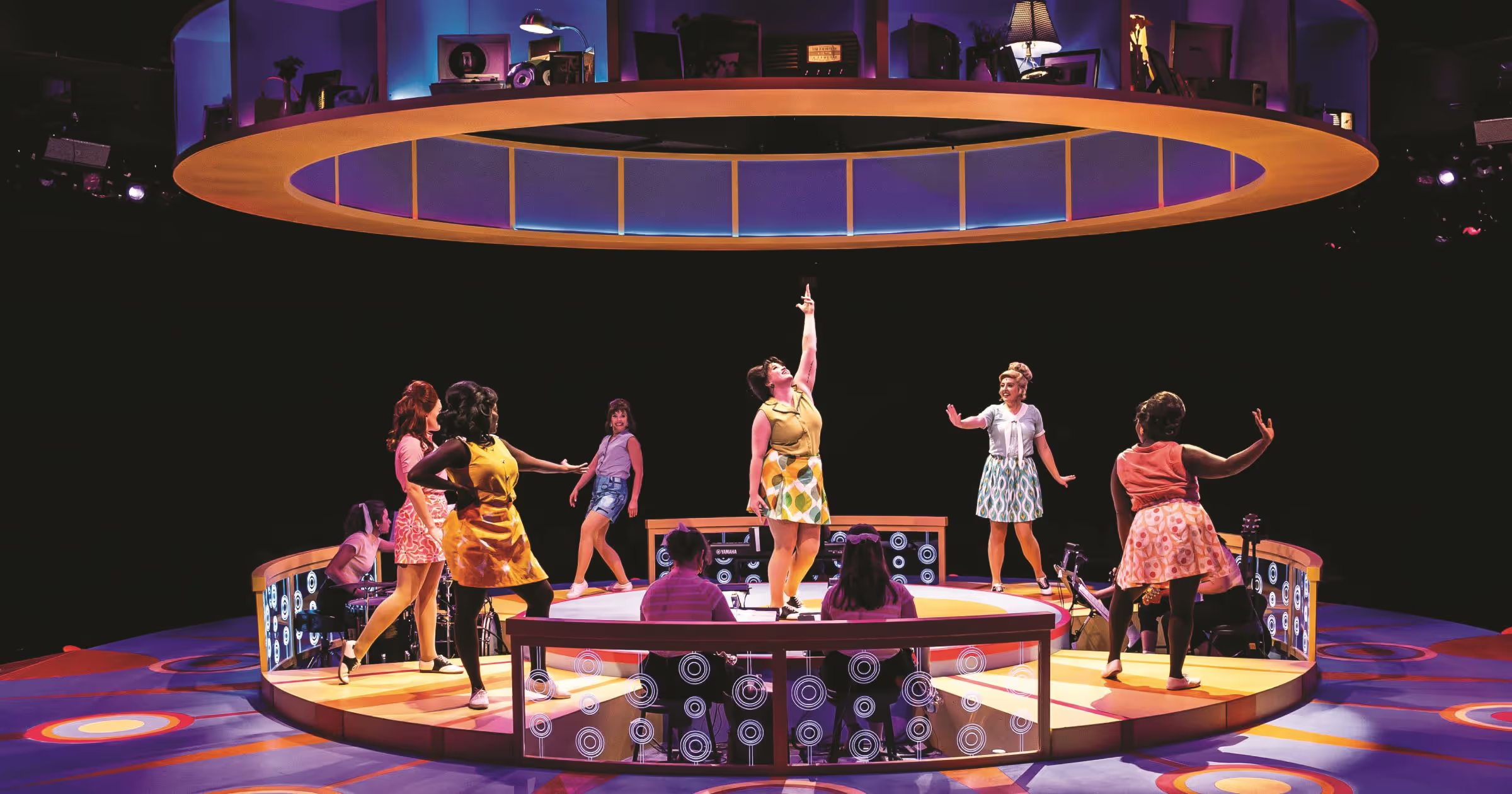Marriott Theatre Opens Summer Season with ‘BEEHIVE: THE 60’S MUSICAL’
The Marriott Theatre has opened the summer season with “BEEHIVE: THE 60’S MUSICAL,” a vibrant homage to the music of the 1960s.
Directed and choreographed by Deidre Goodwin, known for her work on Broadway and in film, and featuring music direction by Jeff Award Winner Ryan T. Nelson, this production celebrates the influential female voices of the era.
Women’s experiences in the 1960s were transformative journeys marked by significant social and cultural shifts. This era witnessed the rise of feminism and the women’s liberation movement, which challenged traditional gender roles and advocated for equal rights and opportunities. Women increasingly entered the workforce, pursued higher education, and fought for reproductive rights.
In popular culture, the 1960s saw the emergence of influential female voices in music, such as Aretha Franklin, Janis Joplin, Diana Ross and Tina Turner, who broke barriers and became symbols of empowerment through their powerful performances and messages. Their music resonated with themes of independence, love and social justice, reflecting the evolving aspirations and challenges faced by women during that time.
Additionally, the 1960s witnessed changes in fashion, with the iconic miniskirt becoming a symbol of liberation and youth rebellion. Women’s hairstyles also evolved, reflecting new attitudes towards personal expression and freedom.
Overall, the 1960s were a pivotal decade for women, characterized by progress toward gender equality, cultural dynamism and the empowerment of female voices in various spheres of society.
The ‘Beehive’ Experience
The actors in the show highlight how music helped young women navigate the challenges of being a teenager in the 1960s. Music served as a source of comfort and support, with women in rock ‘n’ roll acting as big sisters who understood their experiences. They also highlight significant events of the decade and emphasize the importance of understanding the emotions conveyed through songs and how they helped them cope with adolescence.
Through song and dance, the actors discuss the challenges of navigating relationships and gender roles in their respective generations. The conversation highlights the difficulties of managing societal expectations and gender roles across different eras.
Women are essential in taking control of their lives and making personal decisions, especially considering changing attitudes towards gender roles and social norms. One actor expresses discomfort with the topic, while another offers historical context by mentioning the African-American girl group The Shirelles reaching No. 1 on the Billboard charts.
The production also contemplates how pivotal historical events like the John F. Kennedy assassination, Martin Luther King Jr. assassination and the Vietnam War have influenced their identities and self-perceptions.
The show also reflects on the impact of the Queen of Rock’ n’ Roll Tina Turner’s voice during the mid-1960s and its resonance with the women’s movement. Her powerful voice and message of liberation held significant meaning for them, especially in the context of advancing women’s rights.
Running through August 11, “BEEHIVE: THE 60’S MUSICAL” showcases iconic hits from legends like Aretha Franklin, Janis Joplin, Diana Ross, The Supremes, and Tina Turner. Audiences can expect timeless classics such as “My Boyfriend’s Back,” “Be My Baby,” “Son of a Preacher Man,” and “Me and Bobby McGee,” transporting them back to the days of miniskirts, transistor radios, and flower power.
The cast includes Emma Grace Bailey, Grace Bobber, Lucy Godinez, Miciah Lathan, Leah Morrow, and Aisha Sougou, supported by understudies Bridget Adams-King, Clare Kennedy, Tiyanna Gentry, and Savannah Sinclair. The onstage Beehive Band, led by Celia Villacres, features Karli Bunn, Stephanie Chow, Kellin Hanas, Camila Mennitte, and Lauren Pierce.
BeeHive ends with a strong message on survival: to love yourself, be strong, and live your life for yourself.
While life and music were different back then, the message remains timeless: be fierce, be strong, don’t be afraid to love, and know when to let go when things go wrong. Above all, “Make Your Own Kind of Music.”











